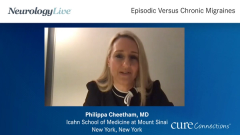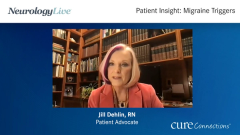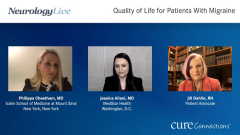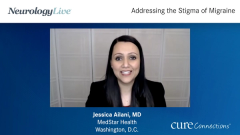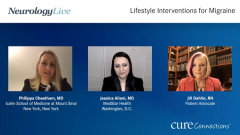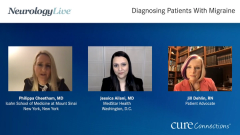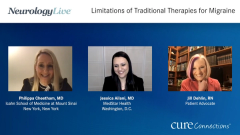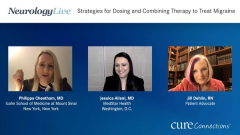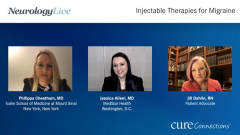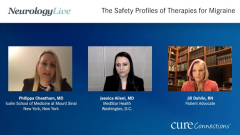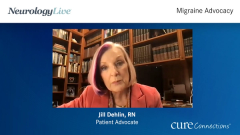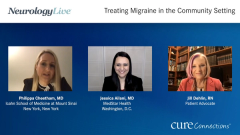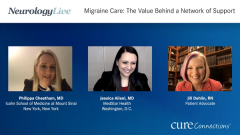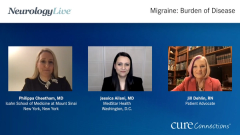
Prescribing Therapy for Migraine
Neurologist Jessica Ailani, MD, explains when she feels it is most appropriate to treat migraine more aggressively with prescription drugs versus with lifestyle intervention.
Episodes in this series

Philippa Cheetham, MD: You have talked already about the kind of sensitization of the nerves and how it is almost changing the biochemistry and the neural networks. When somebody presents to you early on and they have had a very severe attack, is there any evidence to say to that patient, “Look, let’s get you on some prescription medication, a preventive medication, early, so that we can prevent these networks developing?” You have this cyclical, ongoing, migraine merry-go-wheel. Or do you say, “Look, this is the first time we’re meeting, let’s focus on lifestyle issues first,” and only come back to prescription medication if and when those fail? Do you want to get in early and prevent the cycle, or is it better to go up the hierarchy and start with lifestyle issues before bringing in prescription medication?
Jessica Ailani, MD: If a patient is having disabling attacks, I prefer to be aggressive from the onset, if the patient is willing to go that route. There are a lot of people who want to do the lifestyle changes—supplements and such, the easy way in. We do not have a complete answer with evidence to your question, and this is something we are really trying to figure out.
If we treat early and we treat aggressively, can we change disease course? We are starting to look at this with some of our newer treatments, like the CGRP [calcitonin gene-related peptide] monoclonal antibodies. We started to contemplate, if you take a patient who had chronic migraine and you put them on these antibodies and reverse them to episodic migraine, are we more likely to reverse them to episodic migraine than what would have happened if we did not treat these patients? Are we changing the disease state? This is a very important question in our field, and we are just starting to look at that.
The reason that is important is exactly what you are saying. If we take our time and go the lifestyle route, are we actually wasting time and worsening the disease? We do not really know that because, on the other hand, by changing lifestyle, are we not also changing the brain in some way? We don’t actually know that, but we might be. We do know that certain types of biobehavioral work—biofeedback, for example—potentially changes neural networks as well and is not necessarily adding toxins to the body. Aggressively treating our patients with biobehavioral techniques, mindful meditation, biofeedback, acupuncture, yoga, and frequent exercise, potentially can change brain structure as well.
Philippa Cheetham, MD: Thank you for watching NeurologyLive® Cure Connections®. If you enjoyed the program, please subscribe to our e-newsletter to receive upcoming programs and other great content right in your inbox. Thank you so much.
Transcript Edited for Clarity
Newsletter
Keep your finger on the pulse of neurology—subscribe to NeurologyLive for expert interviews, new data, and breakthrough treatment updates.

